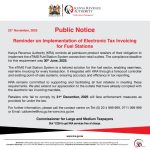Published on 28/07/2025
Experts have raised an alarm over the persistent underfunding of Water, Sanitation, and Hygiene (WASH) services in Uganda’s schools and hospitals, which is driving high school dropout rates, particularly among girls, and costing the economy an estimated UGX 5.9 trillion annually, equivalent to 2.9% of the country’s GDP.
The warning was issued by Dr. Ibrahim Kasirye, Director of Research at the Economic Policy Research Centre (EPRC), during a stakeholders’ engagement organized by the Uganda Parliamentary Forum for Water, Sanitation, and Hygiene on July 24, 2025, at Parliament.

“Without addressing WASH-related diseases and educational losses that entrench poverty, especially for young girls, we face significant economic setbacks,” Dr. Kasirye said. “These losses stem from individual burdens like premature deaths and healthcare costs, as well as reduced future earnings and economic activity in rural areas.”

Citing an October 2024 EPRC study, An Assessment of the Cost of Inaction in WASH Services Investment in Uganda, Dr. Kasirye highlighted that the UGX 5.9 trillion annual loss results from disease burdens, premature deaths (UGX 3.2 trillion), healthcare costs (UGX 1.5 trillion), productivity losses, and time spent accessing services (UGX 500 million each). Inadequate sanitary facilities also force many teenage girls to drop out of school.
The study revealed that WASH services received only UGX 2.7 trillion in the 2022/23 budget, far below the estimated UGX 5 trillion annual requirement. By 2030, this need is projected to double to UGX 10 trillion to sustain life-saving interventions.
Dr. Kasirye criticized persistent budget shortfalls, noting that only 80-85% of allocated WASH funds are typically released. “This deficit disrupts program delivery and carries forward uncompleted interventions, undermining progress,” he said. He also warned that prolonged school absences for girls increase risks of early marriage, further limiting their future earning potential and constraining Uganda’s GDP growth.
Musa Birungi, Senior Education Officer at the Ministry of Education and Sports, called for increased WASH funding and inclusive infrastructure to accommodate learners with disabilities. “Current capitation grants of UGX 20,000 per learner per year are insufficient for improved WASH services,” he said.
He advocated for school development grants to prioritize sanitation facilities and proposed rainwater harvesting systems, while addressing challenges like vandalism in rural schools. Birungi also emphasized the need for better WASH data collection to streamline investments and reduce duplication.
Linda Ruvwa, Advocacy and Health Communication Expert at the Office of the Prime Minister, urged parliamentarians to leverage their oversight and legislative roles to prioritize WASH and menstrual health management. “Parliament must ensure dedicated WASH budget lines, scrutinize allocations, and track compliance by ministries and agencies,” she said.
She also called for policy amendments to integrate WASH into education, health, and infrastructure programs and for MPs to collaborate with local WASH partners to address community gaps.The Office of the Prime Minister stressed the need for MPs to facilitate dialogue between communities, local governments, and the central government to align WASH priorities effectively.
As Uganda grapples with these challenges, stakeholders underscored the urgency of closing the WASH funding gap to safeguard public health, education, and economic growth.








